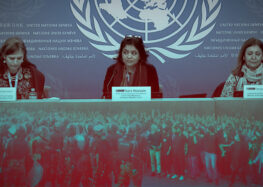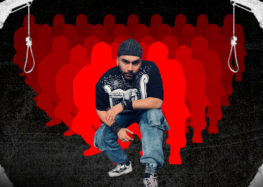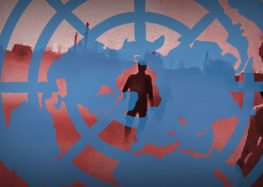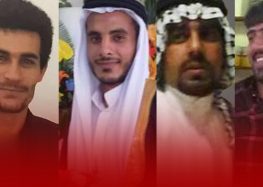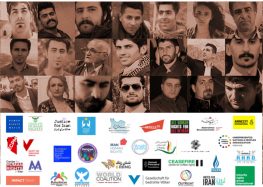Activists Arrested After Mass Strike in Iran’s Kurdistan Province Against “Revenge” Executions
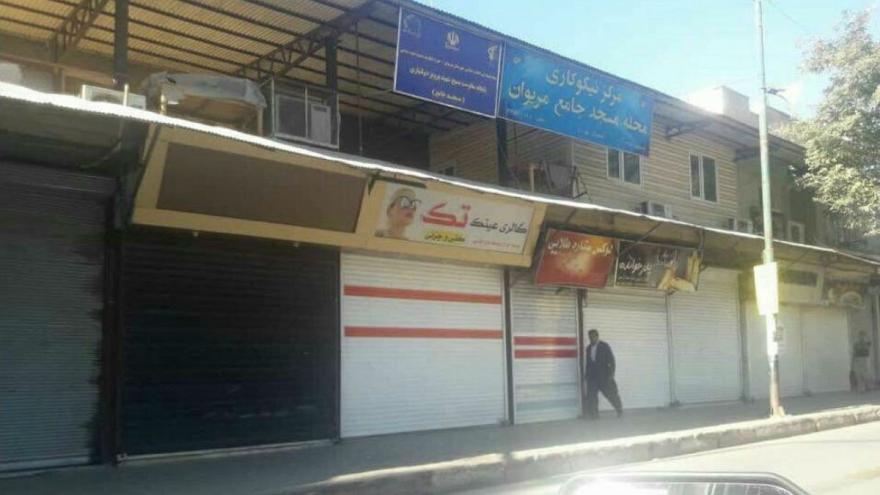
After a mass strike by Kurdish merchants in western Iran on September 12, 2018, Iranian security forces arrested several civil rights activists in the region, the Center for Human Rights in Iran (CHRI) has learned.
The strikers closed their shops in protest against recent executions of Kurdish prisoners and Iran’s missile attack on Kurdish dissidents in Northern Iraq.
“I was in Marivan [Iran’s Kurdistan Province] and I saw that two-thirds of the city’s shops were closed and the main streets were mostly blocked and about 20 to 30 percent of government employees did not show up to work,” Dana Lenjabadi, a Kurdish activist in Marivan, told CHRI on September 13.
“The city of Sanandaj [Kurdistan Province’s capital] was 90 percent shut down and two-thirds of the shops in Mahabad and Saqqez were also closed,” he added.
In response to the protest that was organized by Kurdish opposition groups, at least 12 activists were arrested by Iran’s Islamic Revolutionary Guard Corps (IRGC) and Ministry of Intelligence in Marivan and Sanandaj. Two remained in detention as of September 13: Souran Daneshvar and Aram Fathi.
Several other residents, “possibly shopkeepers,” were also arrested in connection with the September 12 strike, according to Lenjabadi.
Revenge Executions
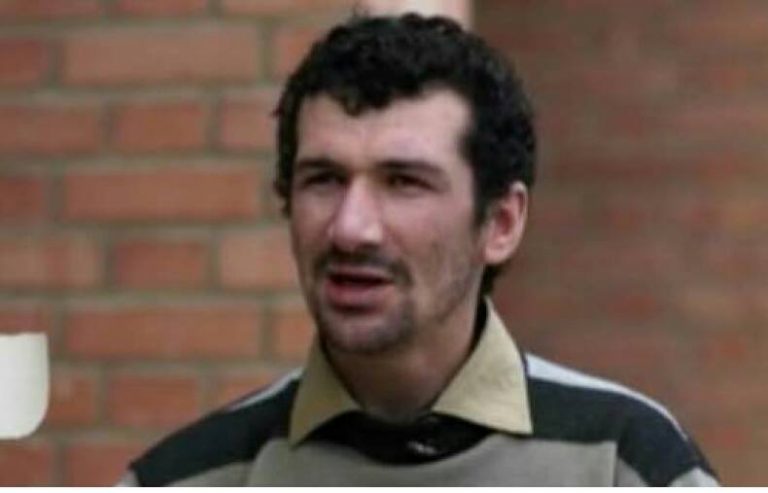
Kamal Ahmadinejad
On September 8, three Kurdish prisoners, Ramin Hossein Panahi, Zanyar Moradi and Loghman Moradi (no relation), were executed in Tehran. Kamal Ahmadinejad, an alleged member of the Democratic Party of Iranian Kurdistan (PDKI), was also executed in Miandoab Central Prison in West Azerbaijan Province on September 10.
The UN cited serious concerns regarding the use of torture, forced confessions and denials of access to counsel in the cases of Panahi and Zanyar Moradi and Loghman Moradi. Ahmadinejad’s family had also stated that he had been forced to make a false confession under torture.
“We were tortured a lot. I still have the marks on my body. I was even operated on in 2012 and 2013 for my injuries. I have slipped discs,” Zanyar Moradi said in an interview with CHRI from Rajaee Shahr Prison in January 2017.
The September 8 executions were followed by an Iranian missile attack that day against the PDKI’s headquarters in Iraqi Kurdistan that left two senior party officials dead and several wounded.
Claiming responsibility for the attack, the IRGC said in a statement on September 9 that the strike was in response to “sabotage and plots by Kurdish parties on Iran’s borders.”
Iran’s security and judicial officials accuse Kurdish parties and activists of engaging in “terrorism” aimed at partitioning the country’s Kurdish-populated region. But many peaceful activists have also been arrested and issued heavy prison sentences including the death penalty after armed attacks on Iranian soil by militant Kurdish groups.
Zanyar Moradi was arrested and accused of being an accomplice to the murder of an Iranian Friday prayer leader’s son in Marivan in 2009. But Zanyar Moradi’s father argued that the security establishment had targeted his son due to his own membership in Komala, a radical Kurdish nationalist group.
“I am a member of the Komala Party of Kurdistan. The Islamic Republic regime has a longstanding animosity with me. They have attempted assassinating me several times, unsuccessfully. I think they thought that arresting my son and waging such charges against him, they wanted to seek revenge on me. The other reason for this is the government’s weakness. When the regime faces political and social crises, they turn to violence and murder,” said Eqbal Moradi in an interview with CHRI in 2011.
Eqbal Moradi was tortured and executed in Iraqi Kurdistan near the Iranian border in July 2018.
Loghman Moradi was also sentenced to death in December 2010 for “involvement in the murder of the Marivan Friday prayer leader’s son” and “moharebeh (enmity with God).” Like Zanyar Moradi, he had denied the charges in court and said he only confessed to the murder because agents of the Intelligence Ministry had tortured him.
Panahi was arrested in June 2017 in Sanandaj, Kurdistan Province, during an ambush by the IRGC against members of Komala, a militant Kurdish nationalist group. He was sentenced to death for armed rebellion despite repeatedly denying ever using a weapon.
“The Iranian judiciary operates outside the law with impunity,” said Hadi Ghaemi, CHRI’s executive director, in September 2018. “Iran’s hanging of men who have been denied counsel and tortured into making so-called confessions is tantamount to murder.”


